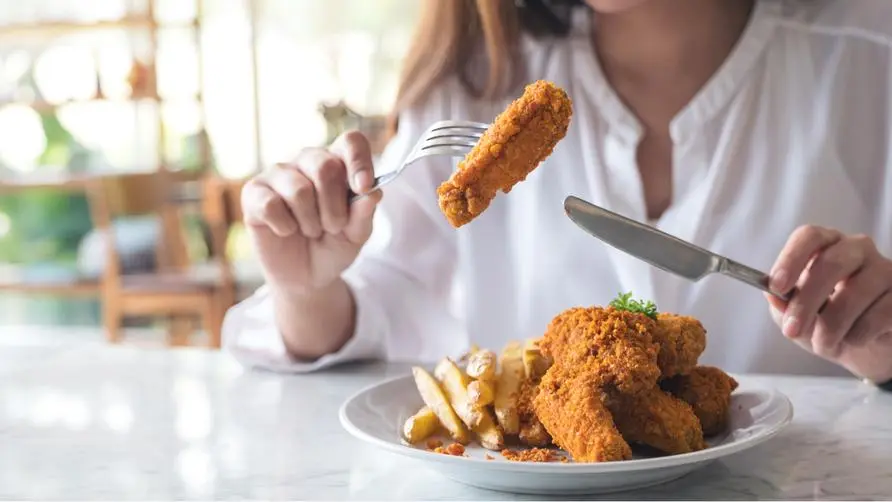Can we only rely on food to relieve stress during home epidemic prevention? Experts teach you "6 must-learn tips" to avoid overeating

Being a “Glutton” at home during epidemic prevention is sad and harmful to your health! “Mindful Eating” 6 Measures to Help Improve Bad Habits
As the epidemic heats up, the pressure begins to surge. Are you afraid of getting diagnosed when you go out, so you have to act as an “epidemic prevention glutton” at home? Overeating caused by stress or emotion not only easily leads to weight gain and obesity, but may also have a negative impact on mental health. “Harvard Health Publishing”, a publication of Harvard Medical School in the United States, pointed out that the scientific community is currently trying to integrate “mindfulness therapy” into daily diet to improve overeating, compulsive eating and other behaviors of overeaters.
“Mindfulness is a practice of ‘living in the present moment’, allowing the surrounding environment to be filled with the five senses.” Helen Burton Murray, a psychologist at Harvard University-affiliated Massachusetts General Hospital, said that by observing the taste, smell and texture of food, you can Helps slow down the eating process, increase satiety, and avoid overeating as much as possible.
Murray further pointed out that the necessary measures for “mindful eating” are as follows:
Eliminate external distractions. Turn off your cell phone, TV or computer before eating, and eat in a quiet and tidy space.
Extend meal times. It is recommended to extend the meal time by 20 minutes. For example, the original eating time is 10 minutes, but the mindful eating rules emphasize that the eating time should be extended to more than 30 minutes.
Focus on chewing your food. Between bites of food, you can put down your utensils at the right time, feel the taste of the food, and concentrate on chewing. Murray said a mouthful of food should be chewed more than 30 times to help increase the “thermogenic effect of food intake” and allow food to be better digested through the gastrointestinal tract.
Keep a food journal. Writing down the details of daily meals not only helps clarify the calorie intake of each meal, but also helps eaters think about the nutritional value of each food and whether it really meets their body needs, thereby avoiding overeating behavior caused by over-purchasing.
Don’t eat completely full. Murray pointed out that practicing “not full” is one of the key points of mindful eating. In terms of diet, you should try to maintain 2/3 of the food intake, or only eat until you are “8 points full” at most. For example, in common all-you-can-eat restaurants, hot pots, and barbecues in Taiwan, if you consciously consume too much food, you should stop consuming desserts, drinks, and other foods.
Reduce portion sizes. Murray said that if you have a large appetite, or you have less time to eat and eat quickly, it is recommended to take smaller portions when purchasing food; you should also proactively ask for smaller portions when dining in restaurants. This will help individuals improve their food awareness and appreciate existing food sources more.
Is “excessive stress” the main reason for overeating? Using food to vent your emotions can lead to a “vicious cycle”
Murray said practicing mindfulness or meditation can have positive effects on mental health even when not eating. For example, abdominal breathing, progressive muscle relaxation, practicing yoga or Tai Chi, or writing a diary every day can help restore calm and eliminate the tension caused by daily work and study.
“The reason why some overeaters engage in overeating may be that they have too much psychological pressure and have nowhere to vent, so they can only express their dissatisfaction through eating. This can easily form a vicious cycle, and you will find that the more you eat, the more you eat. , the mood will be even worse.”
Murray suggested that if you feel that the root cause of overeating may be related to your own emotions and stress, you can also consult a doctor, nutritionist or psychological counselor to clarify the main sources of stress or emotions, and supplement it with daily mindfulness exercises to reduce overeating. Binge or overeating behaviors will hopefully be addressed.
Source:
Further reading:
Is drinking sugary drinks every day an addiction-like vicious cycle? Could the source be stress?





